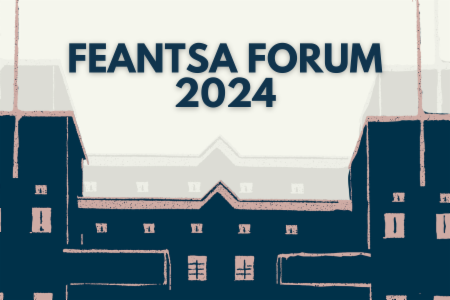Standards for reception conditions under the Temporary Protection Directive – challenges and needs in accessing adequate accommodation
On the 4th of March 2022, in response to the unprovoked Russian invasion of Ukraine the European Commission proposed the activation of the Council Directive 2001/55/EC, known as the Temporary Protection Directive (TPD). Council implementing decision (EU) 2022/382 established the existence of a mass influx of displaced persons arriving from Ukraine and had the effect of activating, for the first time since its adoption, the temporary protection. This unprecedented measure was adopted within one week after the war started and facilitated entry and travel within the EU for millions of displaced persons. It also entitled them, at least in theory, to immediate access to the labour market, education and vocational training, healthcare, and accommodation in the country where they had established.
Despite the advancements under the TPD and additional support measures in the area of reception (including a focus on accommodation), access to adequate accommodation (or to financial support for housing) remains one of the most problematic areas in the European asylum system, including for beneficiaries of temporary protection.
In the situation where over eight million people entered the EU, out of whom almost five million registered for temporary protection, it was clear from the outset that ensuring adequate accommodation for everyone was going to be difficult. This aspect has been recognised by the EC in its March 2023 Communication on ‘Temporary protection for those fleeing Russia's war of aggression against Ukraine: one year on’ which mentions that “Hosting millions of persons displaced in a short period of time has proven one of the major challenges in the implementation of the Temporary Protection Directive.”
Europe was already confronted with a crisis of affordable and adequate housing. In the past years, Member States have repeatedly failed to fulfil the accommodation needs of applicants for international protection in the EU, way too often relegating individuals to inadequate living conditions. In some countries, such as Greece, Belgium, the Netherlands, and Ireland, the lack of political will combined with overwhelmed reception systems meant that asylum seekers experienced sleeping rough recurrently.
While the war in Ukraine added a new layer of pressure on the reception systems, as well as in general on housing systems in receiving countries, this type of destitution has been for the most part avoided for those fleeing the war to Europe from Ukraine. Much credit for this should go to the unprecedented wave of solidarity shown by European citizens, combined with the straightforward and swift reception facilitated by the TPD. More than one year after the war started, however, the situation with accommodation for beneficiaries of temporary protection remains difficult across Member States.
FEANTSA raises awareness on the continuous need to invest in and to develop targeted and long-term strategies to ensure that reception conditions for people in search of protection are compliant with fundamental human rights and in line with established minimum standards. To this end, the aim of this paper is to analyse what have been the reception conditions under the Temporary Protection Directive, with a focus on accommodation. We also aim to shed light on situations where reception standards failed to be met and explore the primary existing challenges in accessing adequate accommodation.
Recommendations are also put forward with the objective to contribute to improving reception conditions for all people who request protection in the EU, with a safe and efficient transition to independent, adequate housing. This analysis and recommendations are based on continuous consultations with FEANTSA members supporting people in search of protection in Europe and on contributions collected between February and June 2023, combined with desktop research.






